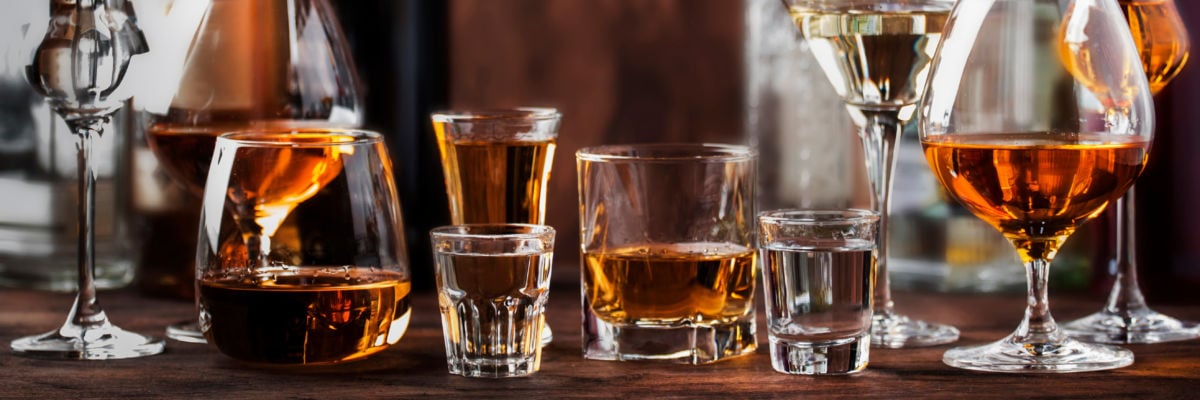
“‘Soberish’ can mean drinking more mindfully, drinking less or avoiding alcohol altogether but not other drugs.”
—Emily Schmall, “Not Drunk, Not Dry: What It Means to Be ‘Soberish,’” New York Times, January 15, 2025
Periodic abstinence is one of the key ways to maintain a healthy relationship with alcohol, and many Catholics use Lent as the occasion for such a dry spell. The Soberish Septuagesima program builds upon this practice as well as another hallowed tradition.
The Sunday of Septuagesima (pronounced sep-two-a-JAY-see-mah) is the roughly seventieth day before Easter and the beginning of Pre-Lent, a period of gradual voluntary food abstinence that took place in preparation for the Great Fast of Lent. Eastern-rite Christians begin abstaining from meat on the penultimate Sunday before Lent and from dairy products on the Sunday immediately before Lent. Roman-rite Christians, on the other hand, used to abstain from meat on the Sunday before Lent, which they called Domenica Carnevala because it was the time to remove (levare) meat (caro) from one’s diet. It is from carnem levare that our word carnival originates.
The Soberish Septuagesima Sodality charts a similar course, starting with a gradual change in alcohol consumption and ending with a booze-free, mocktail-rich Lent. The idea is to change yourself both in body and in soul: your body with a regenerated liver,better health, and a new tolerance level, your soul with strong new virtuous habits.
The program consists of:
1) A Menu Schedule for the weeks prior to Easter (see below),
2) Tips for Completing the Program successfully (see here), and
3) Tips for Reentry after completion of the program.
“Soberish Septuagesima Sodality” is a mouthful, but we chose it for a reason. A sodality is not a mere club, but a companionship of believers united in a common cause. That means, among other things, that despite not being in the same place at the same time, we pray for one another. Join the Soberish Septuagesima Sodality, and wherever you are, there are others praying for you. All you have to do is pray for them in return. As for the schedule:
Septuagesima Week
Septuagesima Sunday was on February 16 this year, but no matter; it is not too late to jump in. Your goal this weekend is to abstain from your favorite alcoholic beverage and replace it with something for which you are less enthusiastic. It does not have to be a drink that you find abhorrent. I, for instance, will drink Jägermeister only as an extreme form of penance. Instead, during Septuagesima week, I have abstained from hard liquor in general and limited myself to beer or wine.
But tastes and temperaments differ. If you drink only beer or wine, perhaps your form of mortification is hard liquor. The point is to step outside your comfort zone but without losing the comfort of the bottle—for now. And the goal is to reduce the amount of alcohol you consume.
Finally, use the time we have left to plan. Next week, we will be enjoying mood-enhancing non-alcoholic spirits and spritzes. Take a gander at the recommendations for Sexagesima Week and plan accordingly. You can find this list on our website.
Sexagesima Week
Congratulations! You have already broken some bad habits by refraining from your favorite intoxicating beverage. Now it is time to assert your independence from C2H6O, the active ingredient in alcohol. Providentially, the no- and low-alcoholic spirit industry is teeming with alternatives. Many a producer promises a buzz without the hangover or any of the other side effects of alcohol. Their secret is to use other ingredients that create a relaxing effect on the soul called adaptogens: lion’s mane mushroom, ashwagandha, L-theanine, elderflower, passionflower, kava, etc. We have tested these products, and to our surprise, they work—especially after having toned down prior alcohol consumption.
Shrovetide
The three days before Ash Wednesday—Quinquagesima Sunday, Shrove Monday, and Shrove Tuesday—were known as Shrovetide because it was a good time to get “shriven,” that is, receive absolution through the sacrament of confession. We concur, and it is also a good time to continue enjoying mood-enhancing nonalcoholic spirits.
Lent
The Great Fast of Lent, as it was once called, extends from Ash Wednesday to Holy Saturday. You can continue with your mood-enhancing beverages if you like, or you can try something new. Nonalcoholic spirits, wine, and beer have reached new heights in recent years. Here are some options. Athletic Brewing Company, for example, sells almost half of nonalcoholic craft beer in the country, and for good reason: their beers are outstanding. And some distillers have done an impressive job mimicking the flavor profiles of gin, bourbon, scotch, tequila, etc. We provide a list of options on our website.
Since you no longer need to have a full stomach (since you’re not drinking), we also recommend observing the traditional Lenten fast, which is one full meal per day at which meat can be consumed (unless it is a Friday or Ash Wednesday), and two other meatless meals that together cannot equal one full meal. (Some rubrics included Saturdays as days of total abstinence from meat as well.) According to today’s Church law, this fast is mandatory only on Ash Wednesday and Good Friday, but when Pope St. Paul VI ended the mandatory fast in 1966, he did so with the hope that all Catholics would continue the fast voluntarily and thus be even more meritorious. As it turns out, he badly misread his flock, and the Great Fast became a thing of the past, but we can still take his advice and observe this worthy practice.
Fasting has numerous health benefits for both body and soul. Regarding the soul, we recall the words of Our Lord: that some demons can only be cast out by prayer and fasting (Matt. 17:20). That may include the demons of drunkenness and addiction.
(The Soberish Septuagesima Sodality can be found on Meta and Instagram [drinkingsaints], including updates and encouragement.)



